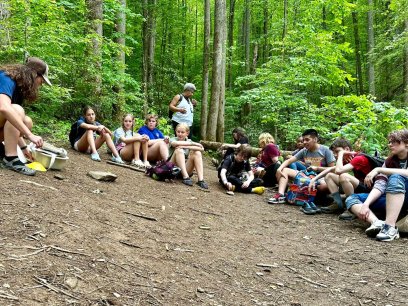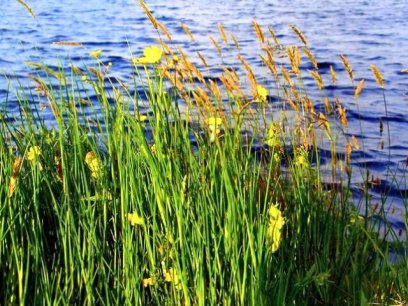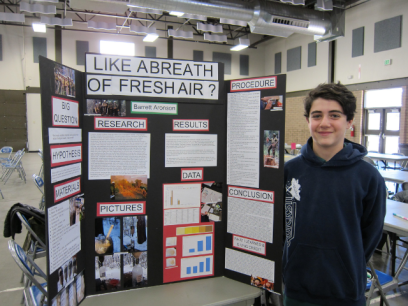
As the nonprofit partner of the Deschutes and Ochoco National Forests, Discover Your Forest (DYF) connects the residents of central Oregon with their national forests through interpretive programming and events.
Financial support from NEEF and the US Forest Service (USFS) supported one such program. During the winter of 2016, DYF’s Citizen Science Academy brought 247 local fourth graders to Mt. Bachelor in Deschutes National Forest to conduct a BioBlitz focused on bird species and pika, a mammal native to the mountains of western North America. Participating students were members of the local Confederated Tribes of Warm Springs and residents of nearby Jefferson County. But for most of the children, this was their first time at Deschutes, and for many, their first time at any federal public land.
What is a BioBlitz?
A BioBlitz is a citizen science activity where people—no matter their scientific background—work together to record the biodiversity of a particular area. Participants work within an established perimeter to record as many species of plants, animals, fungi, or insects as they can find. The data gathered during a BioBlitz is often determined by the needs of local land agency specialists, wildlife biologists, and botanists. Participants might scour a region where the agency lacks data and the manpower to acquire it.
At DYF’s Mt. Bachelor BioBlitz, students used temperature and audio monitoring equipment and custom field guides to learn about the Cascades' unique nivean (snow-dominated) environment. DYF educators, Forest Service specialists, and volunteer interpretive rangers trained participating students to collect data on bird species and local pika populations within Deschutes National Forest, on their school campuses, and in their own backyards. DYF shared the collected data with wildlife biologists at the US Forest Service, National Park Service, Oregon State University, and the Pacific Northwest Research Station, which will help these entities make natural resource and land management decisions.

BioBlitzes were not always central to DYF’s programming. But the nonprofit’s staff quickly discovered that they are a unique way to achieve the Forest Service’s objectives while also offering an entry point to public lands for local residents. According to Karen Gentry, DYF education and volunteer program director, “Locals just weren’t visiting some of their [USFS] sites.” Discover Your Forest’s goal, she says, was to, “Reinvigorate local participation… [with the] hope that it might translate to more volunteers.” Karen found that citizen science activities helped people to engage with the forests in a new way. She explains, “Getting volunteers engaged with what was happening on-the-ground at these public land sites helped them to be more invested and develop a relationship with these special places.”
Getting Prepared for a BioBlitz
What does it take to execute citizen science events such as the Mt. Bachelor BioBlitz? According to Karen, the key is to invest time in the preparatory phase. Before she plans an event, Karen conducts personal and targeted outreach. This might include social media campaigns or meetup events, but Karen finds the most effective way to build a relationship is face-to-face, noting, “You have to meet people where they are.”
So as a part of her preparation for the BioBlitz, Karen made the trip to Warm Springs. She conducted a pre-visit to the students’ classroom: a key component to the success of any field experience. Karen gauged student knowledge and curiosities and prepared them for the program. She then designed a field study that aligned with the students’ interests and classroom curriculum as well as the state’s Next Generation Science Standards. Once at the field site, Karen cautions, “These kids are coming out to a new environment…Some are nervous and hesitant. Help them let down their guard and experience the day.” Karen has learned from experience that the best way to do this is to give children, “Ample time to explore and play before diving into a structured learning experience. This will help them to feel more comfortable in a completely foreign environment before they are able to focus and learn.”
Karen’s advance work paid off. Since the culmination of the Mt. Bachelor BioBlitz, she has seen an influx of fourth graders and their families turning up at the Discover Your Forest’s offices, intent on retrieving their Every Kid in a Park passes—which will give them access to all national parks and federal lands and waters.


